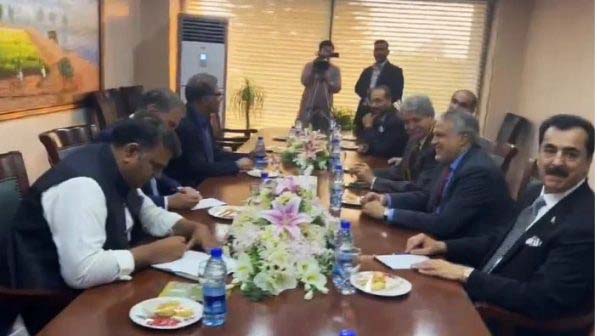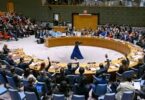Finally, the Pakistan Democratic Movement (PDM)-led government and the Pakistan Tehreek-e-Insaf (PTI) led opposition sat at the negotiating table to discuss the poll date following Supreme Court’s verdicts in this regard. According to the details, the negotiating teams from warring groups met in the parliament and held the first round of talks, the opposition presented its demands to end the ongoing confrontation in the country. The PTI has called for the dissolution of the national and provincial assemblies in early May. According to the PTI, the government should introduce an amendment to the constitution for extending polls beyond May 14 and the PTI’s resignations will have to be called back to give effect to the deal. The opposition demanded nationwide elections for national and provincial assemblies in July this year.
The mayhem of elections in Punjab and Khyber Pakhtunkhwa provinces has become a matter of ego for incumbent rulers and combatant opposition over the past year. The politics of agitation seriously undermined the political fraternity and contributed to the unimaginable loss of the political and economic stability of the country. The Election Commission of Pakistan, the Presidency, civil society, and political strategists failed to end persistent antagonism between the contesting political groups, while the apex court issued clear instructions to the government for holding polls in the respective regions but failed to end the fiasco. Currently, a dialogue has been initiated between the coalition government and the opposition to end the deadlock on the date for nationwide general elections in the country. The opposition has put forth its demands while the PDM borrowed some time for an interparty consultation over the PTI suggestions to reach a consensus response of the 13-member alliance.
Over the past year, the irrational conduct of the political stakeholders has exacerbated the problem and stimmed unimaginable political instability, while the absence of political dialogue, persistent clashes, and intolerance remained a major hurdle in conceiving an agreement regarding the upcoming polls, the code of conduct for political groups, and ensure credibility of the election process. In fact, the inter-party dialogue was highly essential for onward political stability in the country after the elections, as loser political factions had always fumed tumult and confusion about the electoral process throughout the past. Fortunately, a long-awaited process of political dialogue has commenced that demands seriousness and fairness from across the political spectrum including the treasury, the opposition, and other political factions to make this endeavor fruitful instead of making it a time-buying tactic. The people and the state of Pakistan can’t afford further antagonism and political instability in the country and aspects a constructive attitude from the warring political groups at this point in time. All Political stakeholders must abandon the politics of ego, hate, and propaganda by taking a principled course of mutual respect, to preserve public interest, national well-being, and the rule of law that encourage a healthy political process and promote democracy in the country.
Realistically, dialogue and negotiation are the basic pillars of politics and democracy that enable the statesmen to conceive a safe passage out of pricky and cantankerous political situations. At the same time, rigid behavior and refusal to talk always contribute to further disagreement, and confrontation. The people of Pakistan have suffered the pernicious effects of the combative politics of the PDM and the PTI over the past one and a half years. Both factions resolutely stuck to their political agenda and went all out in making up and worsening the political turmoil in the country. Now, the warring groups have moved in the right direction they must continue their dialogue, preserve gains and build their consensus over the upcoming elections at all costs, so the country moves toward calm, and stability.







